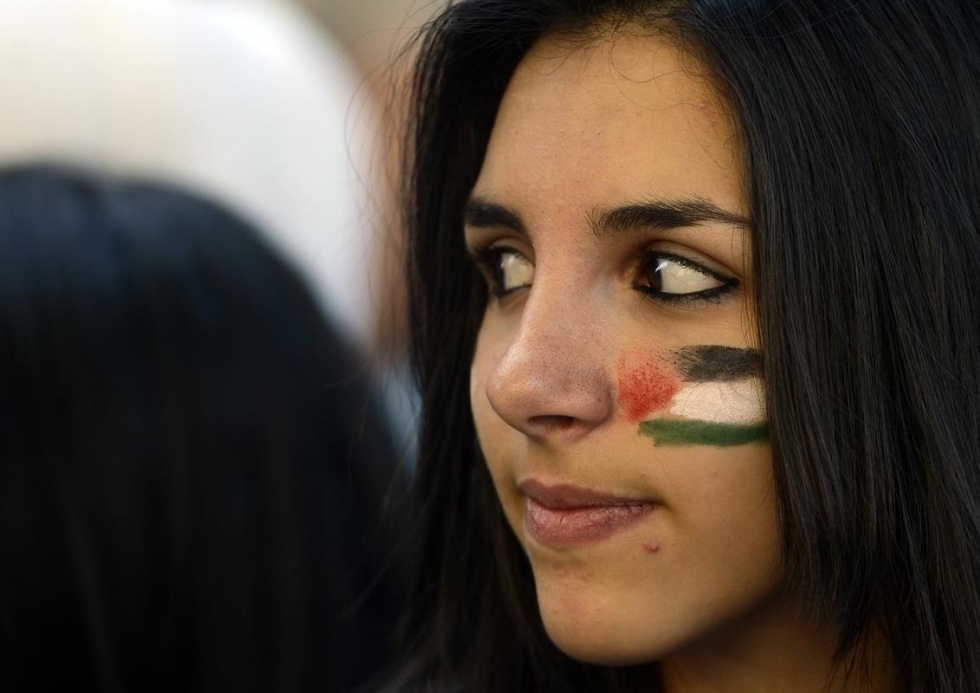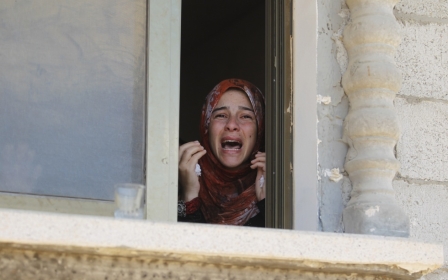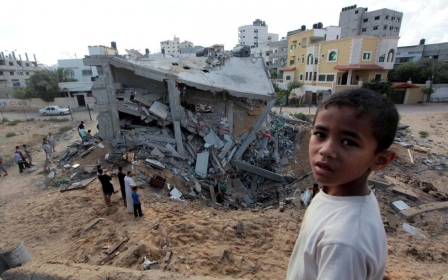Egypt-brokered Gaza truce may take effect tomorrow: reports

A truce to end the fighting in Gaza between Hamas and Israel appeared close on Monday evening, after a deal proposed by Egypt called for hostilities to be “de-escalated” by 09.00 GMT tomorrow and for a full ceasefire to be enforced at 18.00 GMT.
There has been no official response from either side yet, although a Hamas official told AFP that negotiations are underway but that no deal had been struck as yet.
"There are efforts and communications on the issue of a truce deal but until now there is nothing final," the officials said.
While there has also not been any official Israeli response, Haaretz newspaper has reported that the country’s security cabinet will meet on Tuesday morning to discuss Egypt’s proposal. Turkish Anadulu Agency has also quoted an unnamed Israeli official as saying that Israeli Prime Minister Benjamin Netanyahu planned to accept the terms, although some members of his cabinet have announced that they will vote against the proposal.
Under the terms of the deal, Israel will stop aerial, naval and ground operations against Gaza while promising not to launch a ground offensive or harm any further civilians, as per the text of a proposal put forward by Egypt’s Foreign Ministry. It remains unclear what concessions Hamas will have to make, although it will almost certainly have to promise to stop firing its rockets into Israel.
If it the peace deal is implemented, the crossings between Gaza and Israel will be reopened and restrictions on the passage of commodities and people will be eased. Hamas had originally outlined four wide-ranging preconditions for a truce, although it is unlikely all of these will be met. However, on Monday night senior Hamas leader Ismail Haniyeh sounded determined, using a televised speech to calling for lifting a years-long Israeli blockade on the Gaza Strip and reopening the territory's crossings.
"The Gaza blockade must be lifted so that our people live in freedom like all other peoples around the world," Haniyeh said in a speech aired on the pro-Hamas al-Aqsa TV.
Outlines in place
The Egyptians have said that they will receive "guarantees" from both sides about the truce and that once the deal is agreed “high-level delegations from both the Israeli government and the Palestinian factions shall be received in Cairo within 48 hours of the initiation of the initiative’s implementation”. Indirect talks will then be held “for the consolidation of the ceasefire and conclude confidence-building measures between the two sides”.
The proposal comes ahead of US Secretary of State John Kerry’s arrival in Cairo, scheduled for early tomorrow, where he is expected to push for a diplomatic solution to the crisis. Kerry is then expected to fly on to Qatar, a Western ally but one that maintains close relations with Hamas, Egyptian media reported.
The White House also stepped up its rhetoric. While it continued to defend Israel's "right" and "responsability" to defend its citizens, but spokesman Josh Earnest told reporters that, "Nobody wants to see a ground invasion because that would put more civilians at risk".
An Arab League meeting about the crisis is also scheduled to take place in Cairo tomorrow. An Egyptian foreign ministry official told AFP that the meet was “aimed at finding a solution to stop the shedding of Palestinian civilians’ blood and to formulate a common Arab stance on the issue”.
More than 180 Palestinians have been killed and 1,385 injured since Israel launched Operation Protective Edge against Gaza exactly a week ago.
The Egyptian ceasefire initiative has come as, after a senior Hamas official told MEE that the group would not accept Egypt as a negotiator.
The official said Hamas will only consider Turkey or Qatar as potential go-betweens with Israel, a move that was seen as a departure from previous mediations where Egypt has played a vital negotiating role. Egypt’s President Abdel Fattah al-Sisi had originally claimed he wanted to negotiate a truce, but he angered many Palestinians by keeping the Rafah border crossing largely closed.
Israeli air strikes and rocket continued to strike Gaza even as reports of the ceasefire began to emerge and Middle East Eye sources said that they noticed no immediate de-escalation, with two more Palestinians now confirmed killed.
Hamas rockets also continued to fly toward Israel where they have largely caused minor injuries and damage. Monday evening, however, saw the most serious incident of the week-long conflict so far with two sisters – aged 10 and 13 – being hospitalised following a rocket attack. The younger sister, 10-year-old Maram Wakili remains in critical condition.
New MEE newsletter: Jerusalem Dispatch
Sign up to get the latest insights and analysis on Israel-Palestine, alongside Turkey Unpacked and other MEE newsletters
Middle East Eye delivers independent and unrivalled coverage and analysis of the Middle East, North Africa and beyond. To learn more about republishing this content and the associated fees, please fill out this form. More about MEE can be found here.



